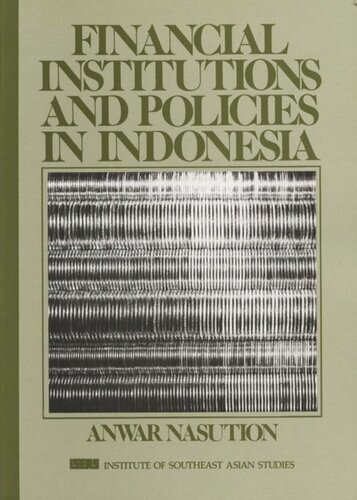

Most ebook files are in PDF format, so you can easily read them using various software such as Foxit Reader or directly on the Google Chrome browser.
Some ebook files are released by publishers in other formats such as .awz, .mobi, .epub, .fb2, etc. You may need to install specific software to read these formats on mobile/PC, such as Calibre.
Please read the tutorial at this link: https://ebookbell.com/faq
We offer FREE conversion to the popular formats you request; however, this may take some time. Therefore, right after payment, please email us, and we will try to provide the service as quickly as possible.
For some exceptional file formats or broken links (if any), please refrain from opening any disputes. Instead, email us first, and we will try to assist within a maximum of 6 hours.
EbookBell Team

4.3
48 reviewsThis book analyses macro-economic development and financial policies and their effects on financial institutions in Indonesia during the New Order era, especially from 1968 to 1980. As a result of the oil boom, the country was able to grow at a respectable rate during the 1970s. However, because the oil money was transmitted into the domestic economy mainly through the government budget, this policy produced unintended side effects on the Indonesian financial system. To restore domestic financial stability, domestic liquidity expansion produced by the government's balanced budget policy had to be checked by direct control on the domestic credit of the banking system through ceilings-cum-selective credit policies. The controls postponed efforts to liberalize the financial institutions as originally intended in the spirit of the 1967-68 banking legislations. At the same time, due to the continuous flow of oil money, the internal tax system remains undeveloped.